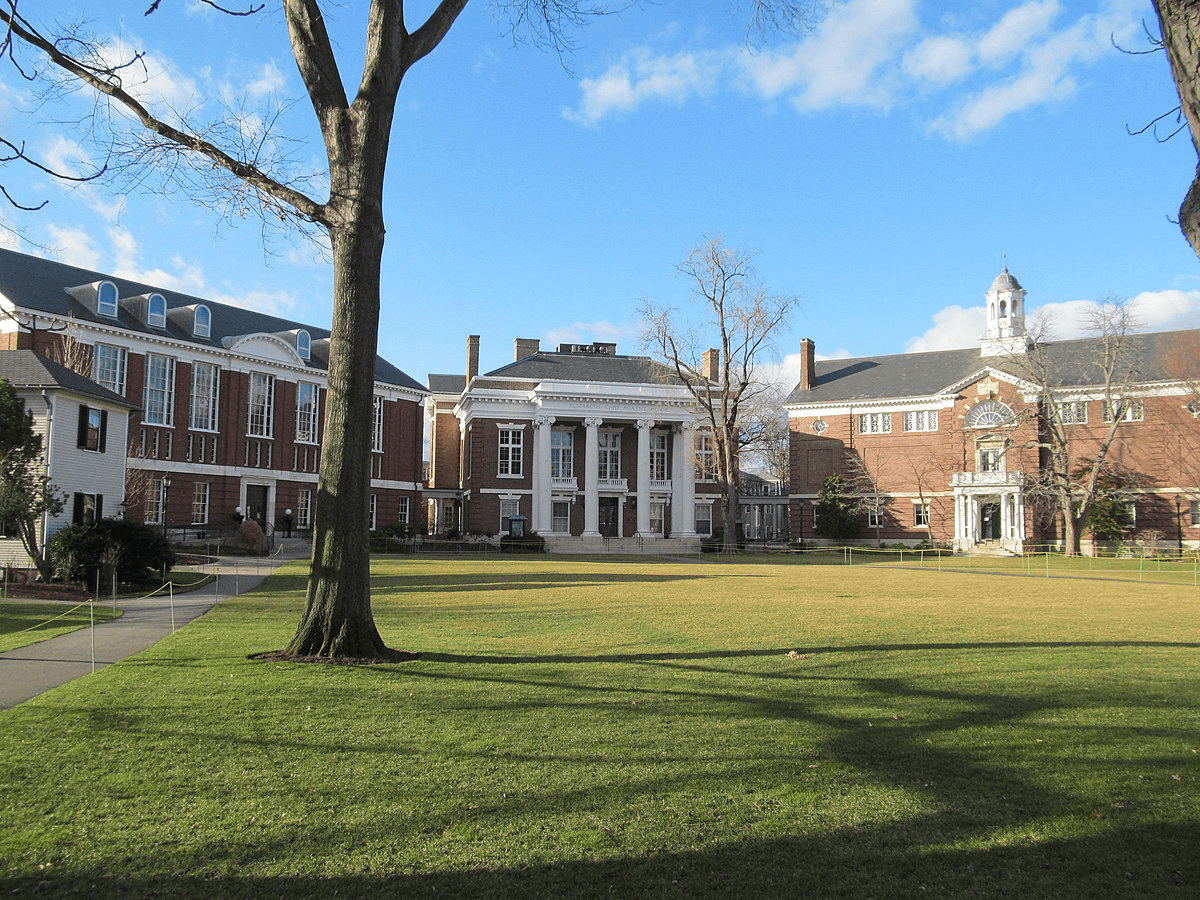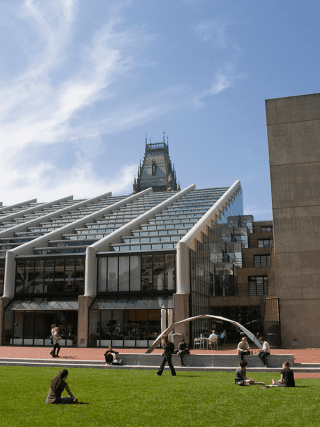London School of Architecture founder and former CEO Will Hunter on Cambridge, Massachusetts, where he is spending the year as one of Harvard University’s Loeb Fellows.
Cambridge Common, which borders Harvard Square, in the morning snow. The statue memorialises the Irish potato famine: “Never again should a people starve in a world of plenty”. Portrait: Freddie Ardley/Main Photograph: Will Hunter

I’ve wanted to move to the US since I first visited two decades ago. The advice goes you should live in New York when young or very rich. Too late on the first; but I harbour lingering hopes in the American Dream that fortunes can be made here.
My grandmother was American, and I picture her Irish forebears being greeted off their ship by the Statue of Liberty. I sought to arrive in this imagined style, but Covid had halted all passenger boats. Instead I flew to JFK, devouring en route Paula Byrne’s excellent biography of Barbara Pym (‘the 20th Century Jane Austen’), which charts the novelist’s transition from Shropshire to Oxford University. Her excitement at the world opening up amplified my anticipation of new horizons.
In other ways she’s been a bad influence. Pym developed personae for herself, such as Cassandra, whom she licenced to behave more wildly. In London, my home for 22 years, I felt like me; here I’ve felt the performance of being an Englishman in America. I’ve introduced a stateside alter ego, Hunter Williams; but I’m finding the accent hard to perfect.
After NYC, I trained to Boston along the stunning New England coastline. I’m here for a year to be one of Harvard University’s 10 Loeb Fellows. For mid-career change-makers in the built environment, there are no set outputs: it’s a time to reflect and plot where you’re going next.
Based at the Graduate School of Design, we can take classes across Harvard or MIT. Rashly I signed up for a dozen but have whittled it to two: social entrepreneurship and systems change at Harvard Business School, and transforming business, self and society at MIT. I’m searching for a next venture that will integrate purpose, profit and positive impact.
In September, the Loeb Fellowship set sail for a retreat on Great Diamond Island, a former military base in Maine. My sense of foreboding – do any stories on remote islands end well? – was heightened as 13 of us sat down for dinner on the first night. When one Fellow announced her lobster may trigger an anaphylactic shock, the prospect of a whodunnit was momentarily palpable. Thankfully the format was not a series of mysterious deaths, but the opportunity to tell our life stories. For a buttoned-up Brit, this was no less scary, but the narratives proved by turns to be moving, revelatory and inspirational. This year’s amazing Fellows have achieved so much. I’m humbled to be among them.
Around town, I’ve decided to approach anyone who seems interesting. This has yielded uneven results, from instant rapport to social snubs. My greatest successes have been at Toscano, the lively Italian restaurant opposite my lodgings where I almost-nightly dined in my first month while waiting for my BF Milo to make it into the US from Canada. Sitting solo at the bar, I’ve enjoyed encounters from the captain of the Harvard wrestling team on a third date to casino owners in their third decade of marriage (“We’re in the sin business”), who bought my dinner and said – sweetly, but misguidedly – I’d be perfect for their daughter. An aspiring actor/waiter has promised to teach me Hunter’s Bostonian accent if I’ll help with his RP.
Everything on campus is walkable, and I’m hoping to shed my lockdown pounds so I can again fit into my optimistically brought suits, which hang in the wardrobe censoriously. But the portions here are enormous! It is routine, I’m discovering, to take half your meal home in a doggy bag.
New England ‘falls’ are renowned for their vividness, and my sense of the first six months has been measured by the transitioning exuberance of the autumn leaves. Now the trees are bare, the campus is revealed as gilded, but slightly lacking Oxbridge’s charm. Here, set-piece public spaces have weaker edges, with unconnected patron-funded buildings creating distinction from, rather than harmony with, their neighbours. But maybe I’m overly fond of quadrangles. Presently, the campus has cohered under a (literal) foot of January snow.
I feel incredibly fortunate to have been chosen to be here, and to be able to engage with new ideas and people. My biggest fear is how quickly it is flying by; my biggest hope to find some way to move to New York afterwards. Following a year locked down in London, the scale of possibilities in the US excites me. My New Year’s Resolution for 2022 is to try to make my home here.
Will Hunter is the founder of the London School of Architecture where he was CEO from 2015-2021




















